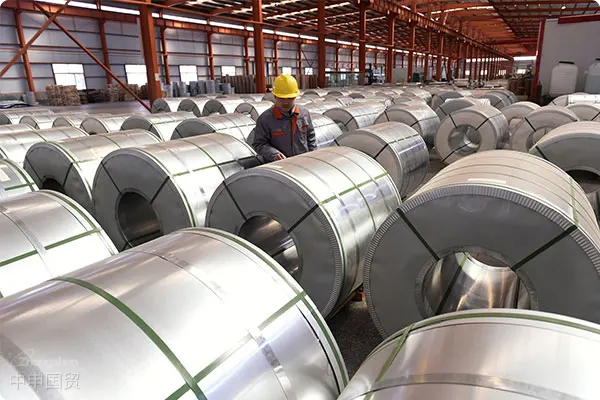- Shanghai Zhongshen International Trade Co., Ltd. - Two decades of trade agency expertise.
- Service Hotline: 139 1787 2118
Following the Sino-US leaders call and US Treasury Secretary Janet Yellens visit to China, the Biden administration has recently sent a series of negative signals, indicating a potentially tougher economic strategy toward China. These actions include proposing significant tariff hikes on Chinese steel and aluminum imports and strengthening economic sanctions, which could have major political and economic repercussions.
According to Reuters, US President Joe Biden proposed raising tariffs on certain Chinese steel and aluminum products from 7.5% to 25% during a campaign event in Pittsburgh, Pennsylvania. This move is seen as a policy to show support for Pennsylvanias steelworkers but could provoke a strong response from China.

US Trade Representative Katherine Tai stated that the US must take decisive action to protect its electric vehicle industry from competition with Chinese products. Tai has completed a review of Trump-era tariffs on Chinese goods and is considering Bidens proposal to increase tariffs on Chinese steel imports.
Additionally, the Biden administration may approve a request from South Korean company Hanwha Qcells to revoke an exemption that allowed tariff-free imports of bifacialsolarsolar panels from China and other countries. This move signals the administrations intent to tighten trade restrictions on Chinese products, though it may impact the US solar industry.
The Biden administration is also pressuring Mexico to prohibit China from indirectly selling metal products to the US via Mexico. Meanwhile, the US is investigating Chinas trade practices in shipbuilding, maritime, and logistics sectors, which could lead to additional tariffs on more Chinese products.
The U.S. Department of Commerce recently added six Chinese companies to its Entity List, indicating that restrictions on Chinese enterprises during the Biden administration have surpassed those during the Trump era.
Although Biden stated he was not concerned about damaging U.S.-China relations after announcing increased tariffs on Chinese steel and aluminum products, economists widely view this approach as more of a political tool than an economic one. Christopher Tang, a global supply chain professor at UCLA, said: This doesnt solve the problem—its just for political posturing.
A report from the U.S. International Trade Commission shows that U.S. importers bore nearly all the costs of tariffs imposed on China during the Trump administration, most of which have been maintained by the Biden administration. Goldman Sachs estimates that each percentage point increase in actual tariff rates would directly reduce U.S. GDP by 0.03%, raise consumer prices by 0.1%, and push up inflation within a year.
In response, a spokesperson for Chinas Ministry of Commerce stated that the U.S. accusations against China lack factual basis and that the related measures are typical unilateral and protectionist practices, which China firmly opposes. They also emphasized that the U.S. actions disregard international trade rules and norms, politicize economic issues, and abuse the 301 tariff review process by openly demanding arbitrary adjustments to tariffs on Chinese products—a wrong approach that does not help resolve problems.
China urges the U.S. to address its own issues, stop raising tariffs on Chinese products, and immediately cancel the additional tariffs. China stated it will take all necessary measures to defend its rights, signaling potential further escalation in U.S.-China trade tensions.
Related Recommendations
? 2025. All Rights Reserved. 滬ICP備2023007705號-2  PSB Record: Shanghai No.31011502009912
PSB Record: Shanghai No.31011502009912









